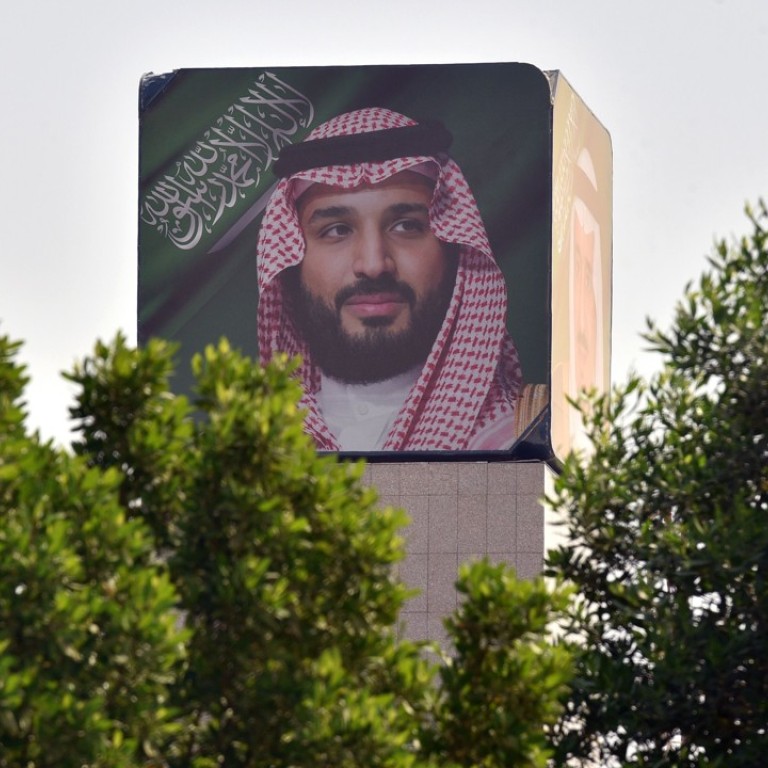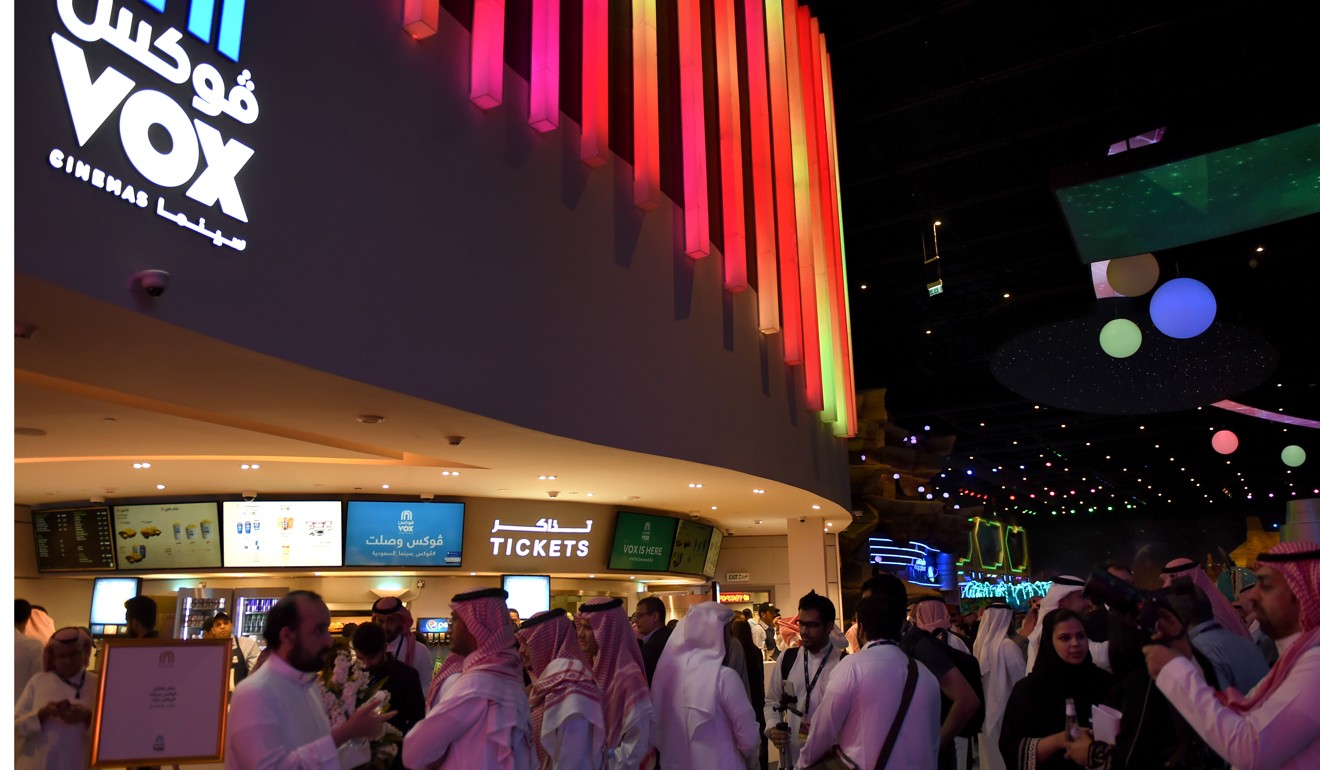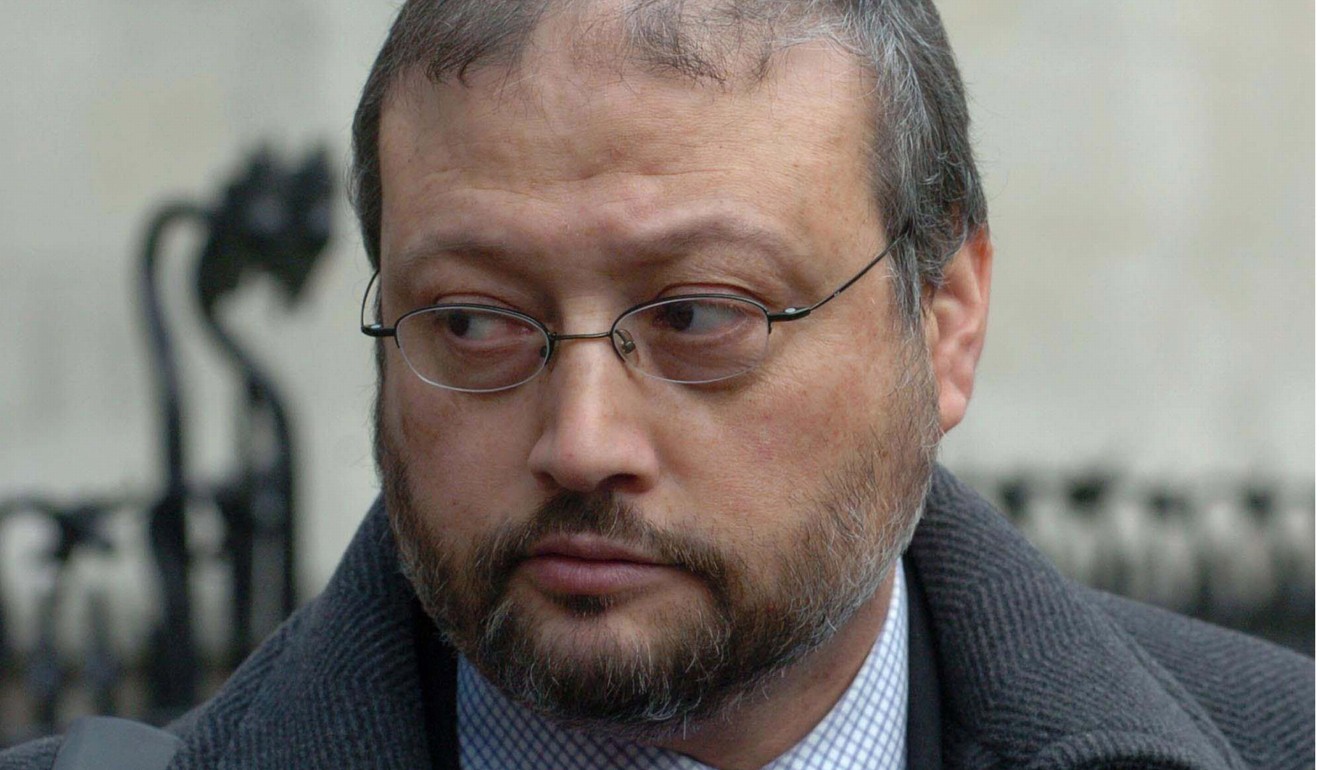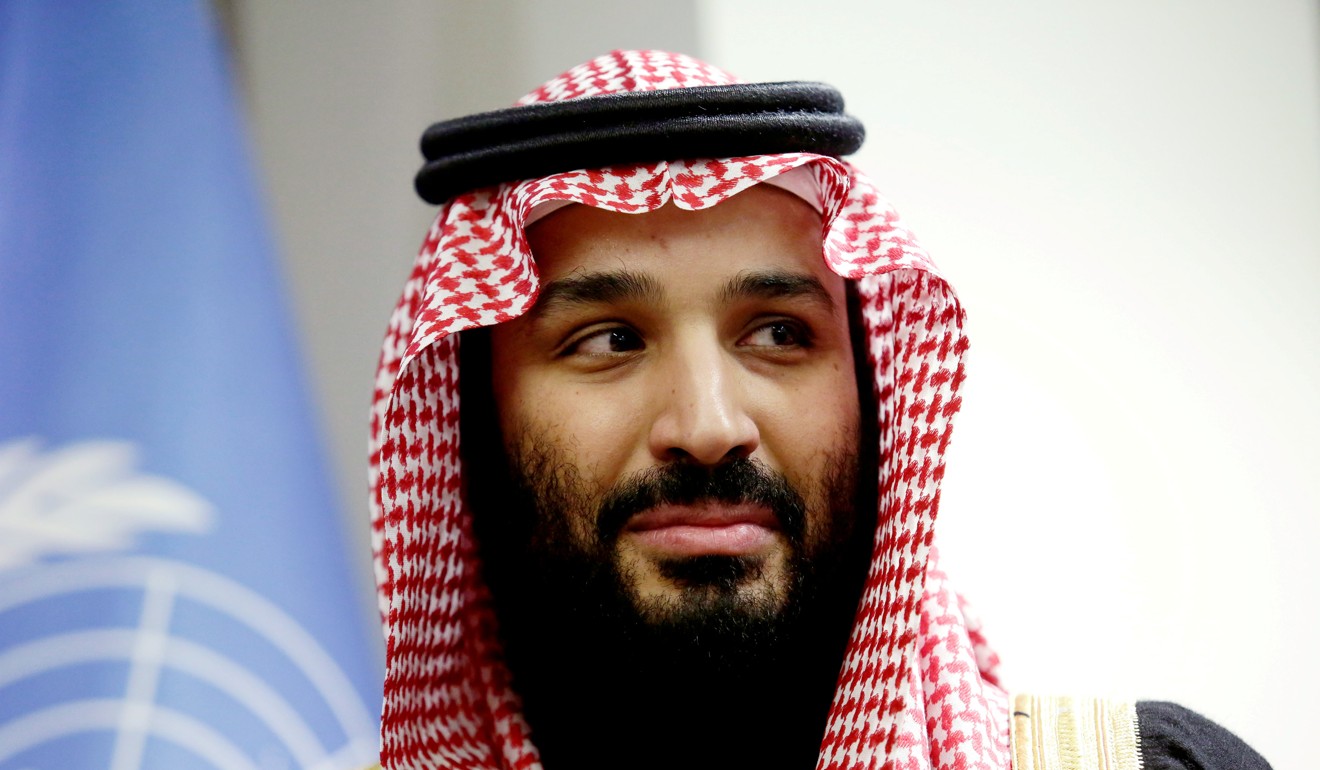
Saudis rally around their prince ‘MBS’ amid global uproar over Jamal Khashoggi’s death
● Recent stories in the local press have blamed Khashoggi’s disappearance on plots by the kingdom’s rivals
At the Vox movie theatre in the Riyadh Park shopping centre this weekend, huge crowds lined up for tickets to see First Man, Venom or Smallfoot.
Lujan al-Ghamdi, 16, said she didn’t care which movie she saw. She just wanted to enjoy her first trip to a cinema, an experience legalised earlier this year in what she considers an act of benevolence by Crown Prince Mohammed bin Salman.
“Whenever we think of him, we think he’s something holy,” said al-Ghamdi, her almost awestruck eyes peeking out from the slit in her full-face niqab.
Her reverence for MBS, as the crown prince is known, has not been diminished by the international outrage over his rash of jailings of political enemies, nor by the killing of Saudi journalist Jamal Khashoggi, a contributing columnist to The Washington Post.
A critic of the crown prince, Khashoggi was killed October 2 inside the Saudi Consulate in Istanbul, Turkish officials say, by a team of Saudi agents linked to the kingdom’s security services and, in some instances, to Mohammed himself.
With anger over Khashoggi’s death running high in the US Congress and European capitals, many in Saudi Arabia are standing with the 33-year-old prince.
“It is difficult to do everything perfectly 100 per cent of the time,” said Khalid Tamimy, 42, a human resources specialist visiting the mall with his wife and three young children.
Saudi Arabia’s account of journalist Jamal Khashoggi killing prompts worldwide criticism
He said he was uncertain of the details of the Khashoggi case. Saudi media, largely controlled by the state, present a pro-government version of events dramatically at odds with what the rest of world’s media is reporting.
In a statement issued early Saturday, the Saudi government finally acknowledged that Khashoggi had been killed inside the consulate and announced that action was being taken against 23 Saudis in connection with the incident.
But the crown prince was not implicated, and Tamimy said he saw no reason that Mohammed would have ordered the killing, as some critics suspect.
“Who am I to judge?” Tamimy said, standing next to his baby stroller.

“I like him. He’s young. He understands our needs. He’s made good things for all of us in Saudi Arabia.”
Even if they were stunned by the abrupt reversal by the government, which had repeatedly insisted for more than two weeks that Khashoggi left the consulate alive, few Saudis would be courageous enough to publicly criticise the country’s leaders – and in particular the crown prince.
In addition to his social restructuring, Mohammed has produced an unprecedented level of fear among those who disagree with him. He has forcefully and at times brutally crushed even the mildest protest and dissent, arresting dozens of people in the past year for little more than criticising the government, human rights groups say.
Several Saudis interviewed said activists have always had leeway to fault the government, although maybe not the royal family itself.
Now, they said in numerous interviews in recent days, people are afraid to even mildly question the crown prince or his policies – even in encrypted communications.

Early Saturday, one academic communicating with a Washington Post reporter about the Khashoggi case deleted each of his messages after a few seconds to make sure there was no record government officials could discover.
Later in the day at the shopping centre, about the strongest – or perhaps only – criticism of Mohammed came from Abdullah, 40, a businessman in a long white robe and lime green running shoes.
He said he thinks men and women mixing in cinemas is a bad idea that is not in keeping with Saudi Arabia’s conservative culture.
What’s the life of Saudi journalist Jamal Khashoggi to US President Donald Trump? Nothing
Abdullah declined to give his last name or talk about the Khashoggi case, saying he was not familiar enough with the details.
He was clear, though, that whatever emerges, Saudis have a duty to rally behind their leaders, especially at a time when the country is being condemned from abroad.
“Whatever they are doing, we know it is best for us,” he said.
“We should be united with our government,” he said.
“We know our country needs us more than ever. Our government gives us so much. This is the least we can do for them.”
In part, Mohammed’s continuing support here has been fuelled by aggressive pro-government Twitter campaigns and Saudi media.

Recent stories in the local press have blamed Khashoggi’s disappearance on plots by the kingdom’s enemies and rivals – Turkey, Iran and Qatar.
One myth repeated endlessly on Twitter is that Qatar owns 50 per cent of The Washington Post, explaining the newspaper’s coverage of the case.
Another column in the Okaz newspaper and Saudi Gazette, called the Khashoggi incident “a comedy act … orchestrated by haters and ill-wishers in Qatar” to “damage the reputation of Saudi Arabia”.
It called them “small parasites with a very short life cycle”.
The column ran under the headline: “The drama will be over soon and Saudis will have the last laugh”.
After the official announcement acknowledging that Khashoggi was killed in the consulate, many of the tweets and media reports here have sought to rally people behind the government.
The official announcement seemed intended to distance Mohammed and his father, King Salman, from the actions of the 18 suspects detained in the case.
“If 18 people betray the King, the other 30 million will not,” said one tweet, parroting the official line that the 18 were not acting on behalf of the crown prince or the king.
At the shopping centre, the crowd was largely young and urban – the kind of people who represent the core of support for Mohammed’s Vision 2030 programme of social and economic restructuring, which has included allowing women to drive for the first time, introducing cinemas and other entertainment, and creating more jobs.
Their voices are significant in a nation where 60 per cent of the population is under 30.
The Saudis who are more likely to oppose the crown prince, including religious conservatives and people from rural areas, tend not to come out for Häagen Dazs and dishes of sweet edamame at a Hollywood movie on a Saturday afternoon, said one retired Western diplomat with long experience in the country.
“The average Saudi will say, ‘I’m sorry, it shouldn’t have happened, but neither should Guantanamo Bay or Abu Ghraib – I’m not going to throw this all away for one journalist.”

